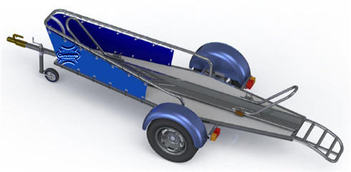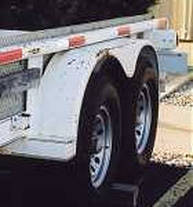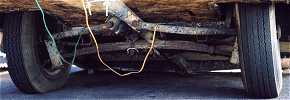|
There are three general categories for consideration with respect to "Good" trailer design: Strength, Stability, and Versatility (or function). A utility trailer has a flat bed with sides that carries all sorts of “stuff”. There are a lot of basics that make the trailer pull well, and carry the required “stuff” as needed for years. Trailer strength: Trailer strength is the first aspect of good trailer design. In utility trailer strength is important because they are frequently loaded or overloaded. The utility trailer must be sufficiently strong so that it can serve well no matter what the requirement. Some factors relating to trailer strength are given below: · Load capacity · Construction(the way it is built) · Materials · Basic trailer layout · Components Load Capacity:
The maximum load for which the trailer is designed to carry will determine much about the strength of the trailer. It will also determine how strong the trailer should be. Trailer strength should be judged with respect to its intended capacity.
0 Comments
|
Archives
March 2024
Categories
All
|
|
We are a 30 year boutique fabrication company located in Dubai with passion in making great industrial equipment. Our mission is to create high quality products which would save time, money and increase productivity.
|
Quick Links |
Services |
Products |
SUBsCRIBE HERESubscribe to our mailing list to get the updates to your email inbox!
|






 RSS Feed
RSS Feed





